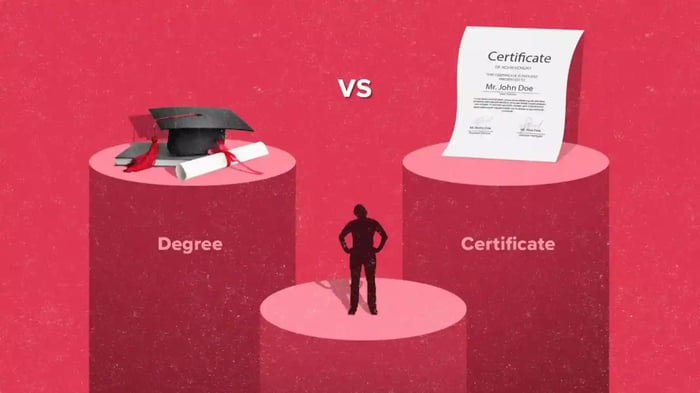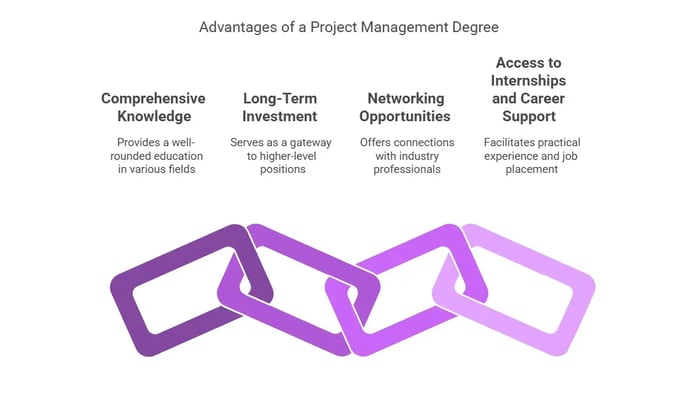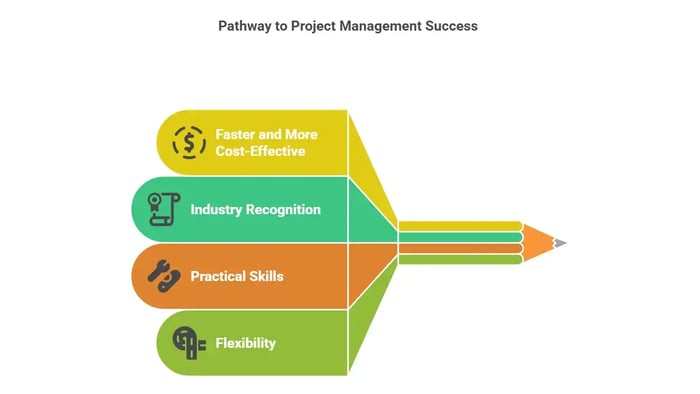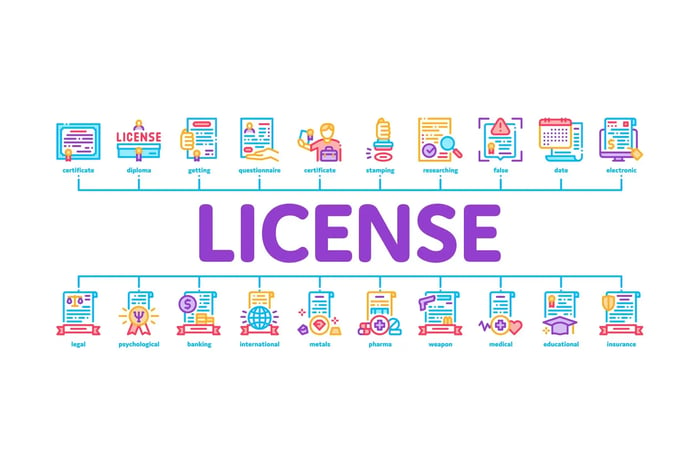Table of Contents
- Why Is Project Management So Popular? 📊
- The Project Management Degree: A Traditional Approach 🎓
- Project Management Certification: The Fast Track 🚀
- Key Differences Between a Project Management Degree vs Certification 📊
- 10 Lesser-Known Facts About Project Management Degrees vs. Certifications 📚
- Conclusion: Choose APMIC for Your Project Management Certifications 🎯
- FAQs
So, you're considering taking your career in project management to the next level. You’re stuck between choosing a project management degree vs certification. Both paths promise valuable career growth, but which one is the better option? Let’s dive deep into this debate and explore the benefits, challenges, and overall value of each path. By the end of this article, you’ll know exactly which one suits you best. Ready to get started? Grab your virtual popcorn, and let’s break it down. 🍿

Why Is Project Management So Popular? 📊
Before we get into the nitty-gritty of degrees vs. certifications, let's take a step back. Project management is a growing field—and for good reason! Every industry needs skilled professionals to run projects efficiently. Whether it's construction, healthcare, tech, or marketing, project managers are in high demand.
According to recent statistics from the Project Management Institute (PMI), the global project management profession will grow by 33% over the next decade, creating nearly 22 million new jobs by 2027. So, whatever route you choose, there’s no denying that a career in project management is a smart investment. 💼
The Project Management Degree: A Traditional Approach 🎓
In this section, we explore what a project management degree entails, including the structure and content of degree programs offered by universities and colleges. We’ll dive into the benefits of pursuing a degree, such as comprehensive knowledge, networking opportunities, and long-term career growth, while also highlighting some of the challenges, such as the time and financial commitment required.
What Is a Project Management Degree?
A project management degree is an academic program designed to provide you with a strong foundation in business and management principles, along with specialized skills needed to manage projects. These programs are typically offered by universities and colleges and can range from bachelor’s degrees to master’s degrees in project management or related fields like business administration or engineering.
Key Benefits of a Project Management Degree

Comprehensive Knowledge: A degree program gives you a well-rounded education, covering everything from business strategy to risk management, leadership, and organizational behavior.
Long-Term Investment: Earning a degree is a long-term commitment, but it’s often seen as a gateway to higher-level positions in the long run. This degree can also open doors to diverse career opportunities outside of just project management.
Networking Opportunities: Universities offer a wealth of networking opportunities. As a student, you’ll connect with professors, industry experts, and peers—all of whom can help you land your first job or expand your career.
Access to Internships and Career Support: Many degree programs provide internship opportunities or career placement services to help students get a foot in the door.
Drawbacks of a Project Management Degree
Time-Consuming and Expensive: A degree can take anywhere from 3-5 years to complete, and the cost of tuition can be significant. This means you’ll need to invest a lot of time and money.
Theoretical vs. Practical: While degree programs provide valuable theoretical knowledge, they don’t always offer the hands-on experience that you’ll need to manage real-world projects effectively.
Project Management Certification: The Fast Track 🚀
This section covers the growing trend of project management certifications, which are often seen as the quicker and more cost-effective route into the industry. We’ll look at the specific advantages of obtaining a certification, such as industry recognition, practical skills, and flexibility in learning, while also discussing the narrower focus and potential limitations compared to a degree.
What Is a Project Management Certification?
A project management certification, on the other hand, is a professional credential that demonstrates your knowledge and expertise in the field. The most popular certifications are offered by organizations like the Project Management Institute (PMI) and AXELOS, and they focus on specific methodologies and best practices in project management.
Key Benefits of a Project Management Certification

Faster and More Cost-Effective: Most certifications can be earned in a matter of months, with a smaller financial investment compared to a degree. The cost of certification exams can vary, but they’re generally much more affordable than a degree.
Industry Recognition: A certification provides you with immediate credibility in the eyes of employers, especially if you have a certification from a renowned body like PMI or APMIC.
Practical Skills: Certification programs are focused on real-world applications of project management, ensuring that you’ll gain practical knowledge that can be immediately applied in the workplace.
Flexibility: Certification courses often allow you to study at your own pace, making them ideal for working professionals who are looking to upskill without committing to a full-time program.
Drawbacks of a Project Management Certification
Narrower Focus: Unlike a degree, certifications tend to focus on specific areas of project management (e.g., Agile, Scrum, or traditional project management). This means you might not get a broad understanding of the business landscape.
Limited Long-Term Growth: While certifications are highly respected, they may not be enough for higher-level roles like CEO or senior management positions. A degree can offer more long-term career growth.
Pro Tip: To dive deeper into different project management certification options, check out our guide on PMI vs PRINCE2.
Additional Read: To learn more about how PMP certification compares to Six Sigma, be sure to read our article on PMP vs Six Sigma.
Key Differences Between a Project Management Degree vs Certification 📊
Here, we will break down the major distinctions between pursuing a project management degree vs certification, such as time investment, cost, depth of knowledge, and career impact. This section will provide a side-by-side comparison in a clear, easy-to-digest format, helping you understand which option aligns better with your career goals and personal circumstances.
| Feature | Project Management Degree | Project Management Certification |
|---|---|---|
| Time to Complete | 3-5 years (Bachelor's/Master’s) | A few months to a year |
| Cost | High (Tuition fees) | Affordable (Exam fees) |
| Depth of Knowledge | Comprehensive (Business + PM) | Specialized (PM methodologies) |
| Recognition | Widely recognized by universities | Recognized in the industry |
| Career Impact | Long-term, high-level positions | Quick entry into project management |
| Practical Experience | Internship-based | Focuses on real-world application |
| Flexibility | Rigid schedule | Flexible study pace |
Pro Tip: If you’re wondering whether a project management certification or an MBA is the better choice, explore our comparison of Project Management Certification vs MBA.
10 Lesser-Known Facts About Project Management Degrees vs. Certifications 📚
Degrees can offer exposure to broader business skills, while certifications are often more specialized in project management techniques. Project Management.
Project management certifications don’t always require a degree to begin with, making them more accessible to those without a formal education in the field. PMI.
Certifications are often required for entry-level positions in project management, especially in industries like construction and IT. AXELOS.
Some project management degree programs include certification prep courses, allowing you to earn both at once.
A combination of a degree and certification can be an ideal career path for those seeking both depth and specialized expertise. Project Manager.
A project management degree may be required for roles in certain industries like government, healthcare, or education. Research Gate.
Certifications focus more on methodologies, such as Agile, Scrum, or Lean, that are highly valued in today’s business environment. SHRM.
Degrees can be a better option for those looking to switch careers, as they provide a broader foundation of business knowledge.
Certifications are often earned while working, allowing professionals to upskill without leaving their jobs.
Certifications can lead to higher pay in the short term but may require additional education or experience for career advancement. Glassdoor.
Conclusion: Choose APMIC for Your Project Management Certifications 🎯
At the end of the day, whether you choose a project management degree or a certification depends on your career goals, timeline, and budget. However, if you're looking for flexible, practical, and widely respected certifications, APMIC offers top-tier certifications that can elevate your project management career without the lengthy commitment of a degree.
For those ready to make a move in the project management world, consider checking out our APMIC project management certifications and fast-track your career today!
FAQs
What’s the difference between a PMP certification and a degree?
A PMP certification focuses specifically on project management skills and methodologies, whereas a degree provides a broader education that includes business strategy and other management principles.
Is it better to get a degree or a certification in project management?
If you’re looking for quick career advancement and hands-on knowledge, certifications are the way to go. However, for long-term career growth and more senior roles, a degree can provide a broader skillset.
How much does a project management degree cost?
A degree can cost anywhere from $20,000 to $60,000 or more, depending on the institution and whether it’s an undergraduate or graduate program.
Can I become a project manager without a degree?
Yes! Many project managers begin their careers with certifications, particularly the PMP or CAPM, and gain experience over time.
Which certification is best for project management?
The PMP (Project Management Professional) certification is highly regarded, but certifications like Agile and Scrum are also valuable depending on your field.
How long does it take to get a PMP certification?
PMP certification can typically be earned in about 3-6 months, depending on your preparation time and study schedule.
Are project management certifications worth it?
Absolutely! Certifications help validate your skills, improve your job prospects, and can significantly increase your earning potential.
Can I work while earning a project management degree?
Yes, many degree programs offer part-time or online options, allowing you to work while studying.





